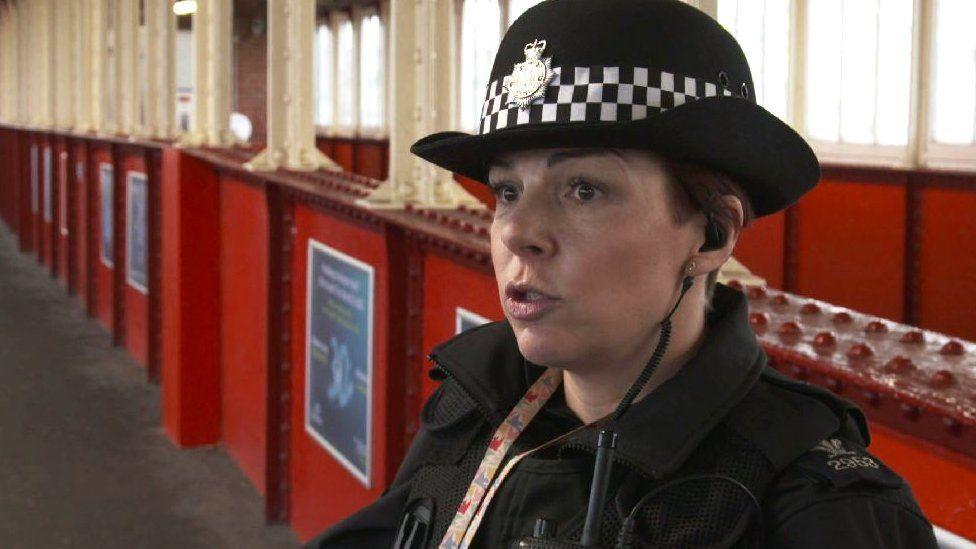Met Police commissioner concerned officers using food banks
- Published
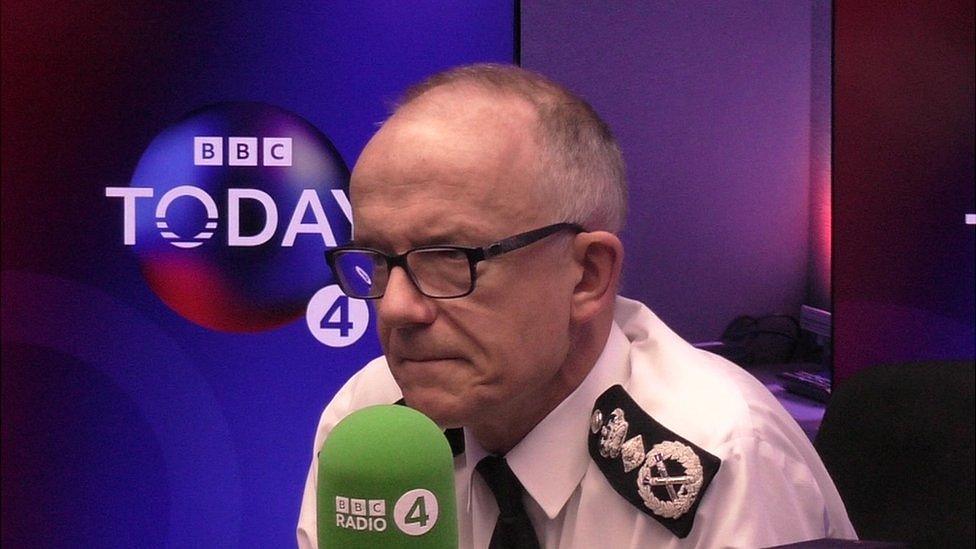
Sir Mark told the BBC his plans to reform the force included "improving our vetting on entry"
Met Police Commissioner Sir Mark Rowley says he is "concerned" officers are relying on food banks due to low pay.
Speaking to the BBC, Sir Mark said his officers had seen a real-terms pay cut of 14% in a decade and were "frustrated".
It comes amid reports from charities that officers from across the country have been using food parcels to get by.
In the capital, the City of London Police Federation set up a food bank in December to help struggling members.
In an interview on Radio 4's Today programme, Sir Mark said he was "concerned about the cumulative effect of challenging pay".
He cited Police Federation of England and Wales (PFEW) data showing many officers question whether they can afford to remain in policing amid the cost-of-living crisis.
"I've seen data about police officers using food banks, which is really concerning. So those issues are of great concern to me.
"I need to do everything possible to set them up to succeed," he said.
"Part of that is them feeling they can make ends meet. All the data says some of them are finding that hard."
Sir Mark's remarks are the latest in a string of comments raising awareness about the struggle with the cost of living that officers are facing.
In May 2022, Steve Hartshorn, chair of the PFEW, gave a speech at its annual conference asking the then Home Secretary Priti Patel why police were "one of the only groups of frontline public sector workers being penalised in their pockets".
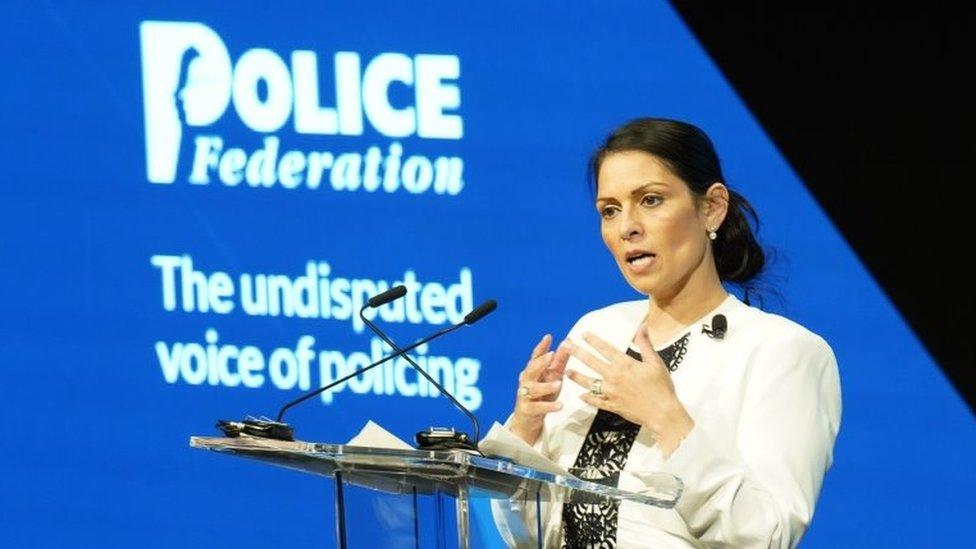
The issue of police pay is something former Home Secretary Priti Patel has been confronted about
At the same event, Ms Patel was confronted over the issue by a detective with 23 years of service, who described how she had to borrow from her mother to pay for school dinners.
Sir Mark also revealed the Met had hired a "renowned" data scientist to use algorithms as part of wider plans to reform the force following a series of damning reviews.
On Tuesday, he announced plans for the force to start gathering data on tens of thousands of men recently convicted of domestic assault, rape, sex offences, stalking, and harassment, to then identify the capital's 100 most dangerous men preying on women and girls.
'Go after these people'
Sir Mark said the process would involve bringing data together from "different systems" and using algorithms to "stack them from, say, number one to number 50,000, or however many that pile is".
He said the data would then be assessed by staff to "identify who the top thousand are, who are the next thousand, and then determinedly apply proactive measures to go after these people".
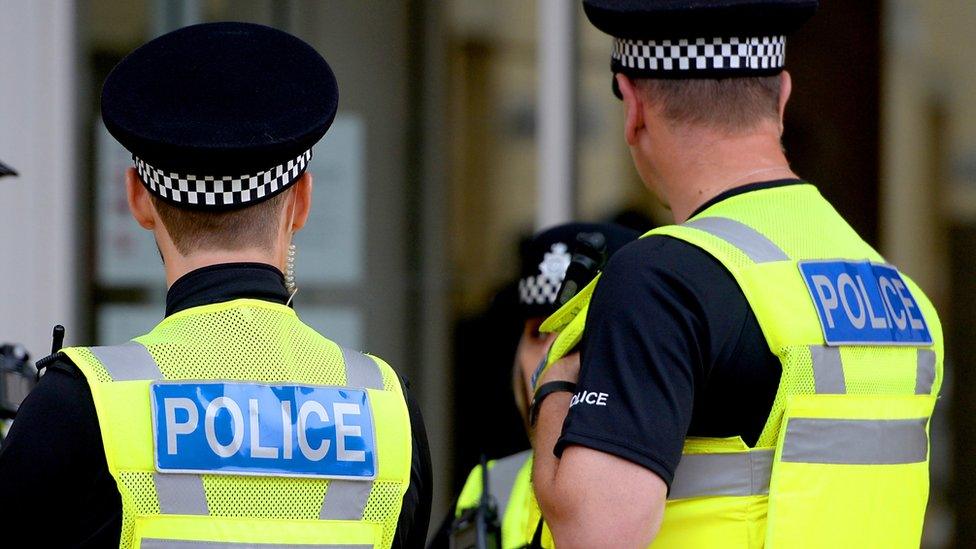
The Met has announced plans to use "counter-terrorism and organised crime" tactics to target the most dangerous male predators
"That may be surveillance, it may be using domestic violence prevention orders, stalking protection orders and all the different tactics we've got to control these people," he added.
The commissioner initially announced the plans in a Westminster speech, as part of wider plans to reform the force.
'Sacked officers reinstated'
He told the BBC this included "improving our vetting on entry", saying: "There are cases where there were warning signs and our vetting wasn't good enough. And that's why we are beefing that up".
"Police regulations make this harder than it ought to be in terms of processing misconduct and sacking people," he continued.
"We've got some officers who we sacked but other legal bodies, who have a power to reinstate them, did.
"So I've got officers that we determined shouldn't be police officers, and yet I have to keep them.
"I'm the commissioner and yet I can't decide who my own workforce is," he said.
"We have some very worrying cases with officers who have committed criminality whilst police officers, and yet I'm not allowed to sack them - it's crazy."
A draft version of the policing plans is set to be published in the next few days, after which the force will seek community and partner feedback.
A further version of the plan will then be published before April.

Follow BBC London on Facebook, external, Twitter , externaland Instagram, external. Send your story ideas to hellobbclondon@bbc.co.uk
- Published11 January 2023
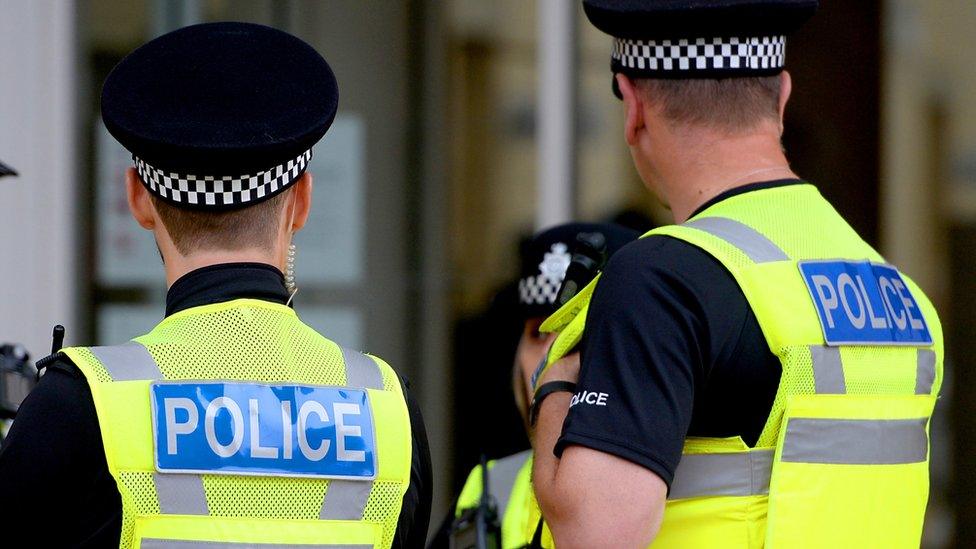
- Published24 November 2022
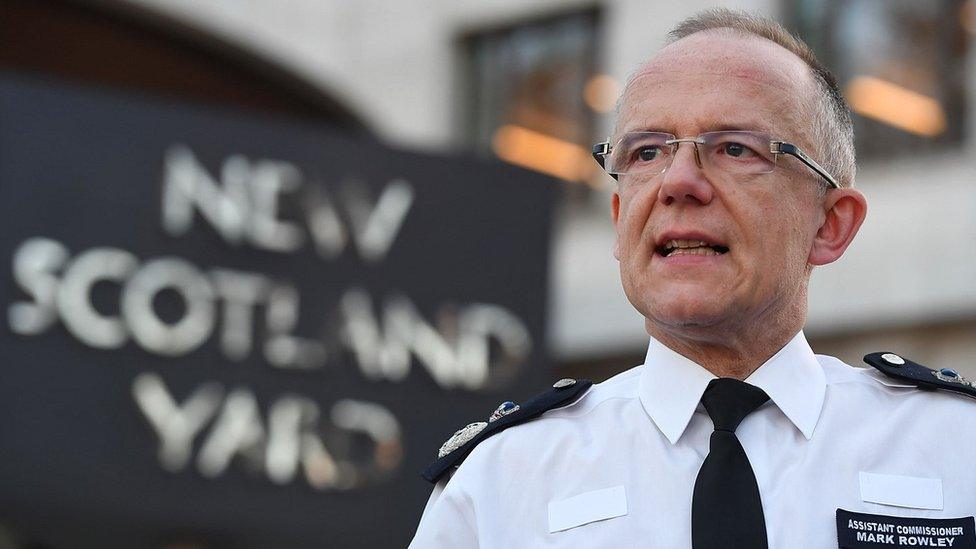
- Published22 September 2022
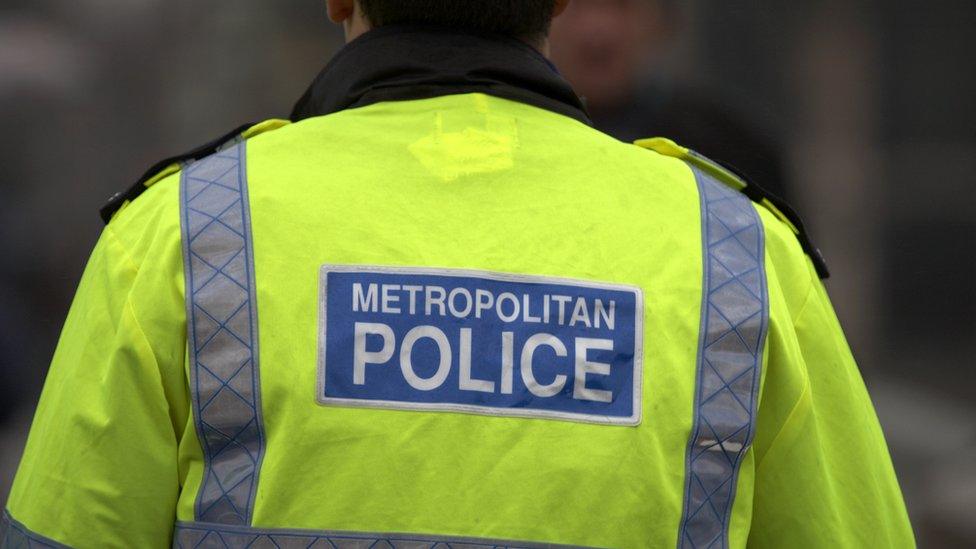
- Published18 May 2022
